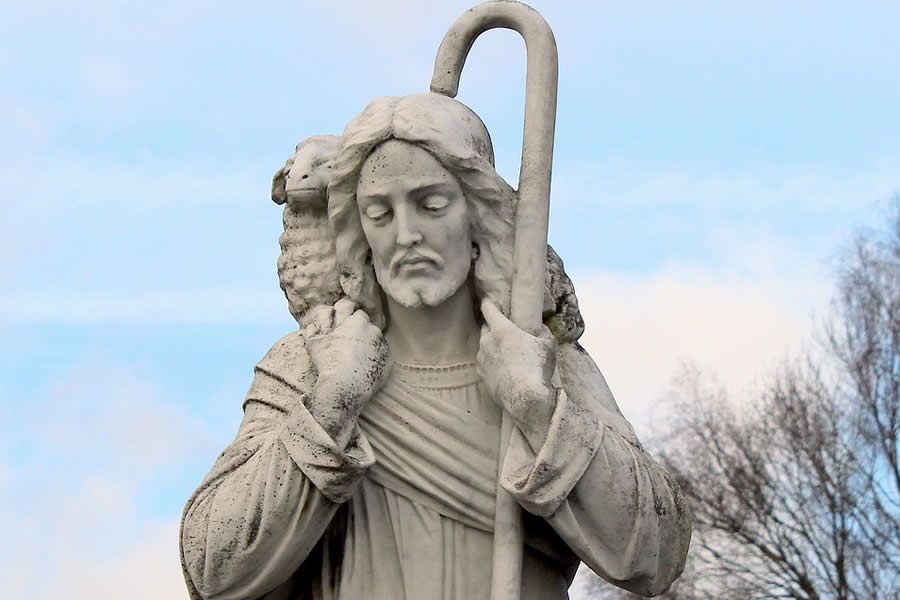St. Francis of Assisi Weekly Reflections

Be Merciful as God is Merciful
02-24-2019Weekly ReflectionWe Celebrate Worship Resource, Vol. 44, No. 1Jesus challenges us again this week. It is not enough for his disciples to be blessed when they are persecuted; now he tells them they must turn the other cheek. They must give the clothes off their back—not to the poor and needy, but to the very person who has already stolen their cloak. This kind of attitude is radical, preposterous. It goes beyond even the magnanimity David showed in sparing Saul’s life even though Saul was ready to kill him. In David’s age, in Jesus’ time, in our day, society tells us it is appropriate to retaliate against those who hurt you. It is difficult to resist the urge, let alone to turn around and be generous—to give your other cheek , your possessions, your forgiveness, your love—to those who hate you. But this is what we are called to do. Be merciful, as God is merciful. Jesus isn’t just teaching here. He is revealing himself and his mission. His mission is to love, in fact, to save those who steal, who curse, who injure, who hate. Sinners. Us. He is revealing our mission as well. We are called, after all, to “bear the image of the heavenly one” (1 Corinthians 15:49). We are called to be Christ.
How can you show mercy to those who have hurt you?
READ MOREIn Another's Shoes
02-24-2019Question of the WeekReading I 1 Samuel 26:2, 7-9, 12-13, 22-23 - Saul's life spared; Saul admits his guilt
Reading II 1 Corinthians 15:45-49 - The natural and the spiritual body
Gospel Luke 6:27-38 - Love of one's enemy
Key Passage Jesus said, “But I say to you that listen, Love your enemies, do good to those who hate you, bless those who curse you, pray for those who abuse you.” (Luke 6:27–28)
Adults: What has allowed you to overcome obstacles and forgive someone who has hurt you?
Kids: When has it been hard to forgive someone who hurt you? What did you do?
READ MORELuke
02-24-2019Liturgy CornerFr. Paul Turner © 2001 Resource Publications, Inc.Every third year most of the Gospels at the Sunday Eucharist come from Luke. In Ordinary Time, we hear many passages about Jesus’ ministry in sequence. During Advent, Christmas and Lent we hear sections that accent the themes of those seasons.
Luke excelled in quantity and quality. As the writer also of Acts of the Apostles, he composed nearly a third of the New Testament. The most eloquent of all the evangelists, Luke includes in his Gospel the beautifully crafted stories of the Annunciation to Mary, the Good Samaritan and the Prodigal Son. Without his work, we would have no knowledge of those stories.
READ MOREReaching Out to Others
02-17-2019Question of the WeekReading I Jeremiah 17:5-8 - True wisdom
Reading II 1 Corinthians 15:12, 16-20 - The resurrection and faith
Gospel Luke 6:17, 20-26 - The great discourse
Key Passage Then he looked up at his disciples and said: “Blessed are you who are poor, for yours is the Kingdom of God.” (Luke 6:20)
Adults: In what way are you serving the poor, as Jesus did?
Kids: When have you helped bring God's love to someone who was sad, or hungry, or whom others made fun of?
READ MOREMeaning of Alleluia
02-17-2019Liturgy CornerFr. Paul Turner, © Resource Publications, Inc.The word alleluia, or hallelujah, is used to express praise, joy, or thanks. The word first appeared around the 14th century in Hebrew scripture. The word “Hallelujah” is the Greek form of the Hebrew. It is often used as “Praise ye Jehovah”. It begins or ends several psalms in the Greek scriptures.
In the context of a liturgy, we use “Alleluia” most often as our Gospel Acclamation before the proclamation of the Gospel. Alleluia is often sung in hymns and psalms as well.
READ MORE
Blessed are You who are Poor
02-17-2019Weekly ReflectionWe Celebrate Worship Resource, Vol. 44, No. 1In Christ, the world is transformed and we are called to be transformed along with it. Luke’s version of the Beatitudes, which we hear today, is more direct than Matthew’s. More difficult, as well. It is not the poor in spirit who inherit the kingdom of God, but the actual poor. It is not those who hunger for righteousness who will be satisfied, but the plain old hungry. As if that weren’t enough, Luke, unlike Matthew, also includes the flip side: “Woe to you who are rich...woe to you who are filled now” (Luke 6:24-25). Basically, the Kingdom of God reverses your current place in society. As Christians we are paradoxical people. In baptism, we die with Christ. Because we have died with Christ, we receive the promise of eternal life. As Paul points out, we trust that Christ has been raised so that we may be raised as well. To borrow Jeremiah’s image, we are the tree planted beside the waters of baptism—the waters that bring plenty out of poverty, fullness out of hunger, joy out of mourning, and life out of death.
If your current place in society were reversed, where would you be now?
READ MOREStretching Our Limits
02-10-2019Question of the WeekReading I Isaiah 6:1-2a, 3-8 - Call of Isaiah
Reading II 1 Corinthians 15:1-11 - Christ's resurrection
Gospel Luke 5:1-11 - Call of the first disciples
Key Passage Simon Peter fell down at Jesus' knees, saying, “Go away from me, Lord, for I am a sinful man.” Then Jesus said to Simon, “Do not be afraid; from now on you will be catching people.” (Luke 5:8,10b)
Adults: When have you felt inadequate to a task or role you were given? How did you respond?
Kids: When have you been asked to do something you felt might be too hard for you? What did you do?
READ MOREAltar Servers
02-10-2019Liturgy CornerFr. Paul Turner, © 2004 Resource Publications, Inc.Altar servers assist at Mass. They may carry the cross, candles, and incense in the procession (General Instruction of the Roman Missal 100). At the preparation of the gifts, they arrange the corporal, purificators, chalice, pall, and missal on the altar (139) and assist in receiving the offerings (140). They present the water to the priest or deacon (142), who adds some to the wine. Servers may incense the priest and the people (75). They wash the priest’s hands (145). They may ring a bell (150) and incense the Body and Blood of Christ during the elevations (179). They may exchange peace with other ministers (154). After communion they may remove the vessels (163). Servers have their own seats, and they show their reverence by their dress, by bowing and genuflecting when appropriate, and by singing and joining in the responses.
READ MORE
How is God Calling You?
02-10-2019Weekly ReflectionWe Celebrate Worship Resource, Vol. 44, No. 1What in the world does she see in him? We ask incredulously when the object of a friend’s interest seems unworthy. One may ask the same of God regarding the imperfect people who become prophets or disciples. Why would God choose Isaiah, a man who admits to being unclean, and worse, doomed, for such was the fate of those who had seen God? Why would Jesus choose Peter, impetuous, stubborn Peter, who admits to being a sinful man, foreshadowing his eventual denial of Jesus? Yet God chooses both and both end up playing major roles in the history of the church. So too does Paul, who calls himself unworthy because he had persecuted Christians prior to his conversion. All three have an unexpected encounter with the Lord. We hear of two today. Both Isaiah and Peter receive a sign and an invitation. A seraph symbolically burns away the sin from Isaiah’s lips. Peter’s net, empty all night, fills with fish. Thought unsure of their worthiness, each accepts the call. Paul recognizes how this can happen, for it happened to him. It is not their own virtue but the grace of God that made them worthy. And so they respond, “Here I am,” and “left everything and followed” (Isaiah 6:8, Luke 5:11).
How is God calling you? Can you recognize God’s grace?
READ MORE
Love Bears All Things
02-03-2019Weekly ReflectionWe Celebrate Worship Resource, Vol. 44, No. 1It is the fate of the prophet to be rejected. A prophet challenges those who think that they are doing fine. They do not want to hear that they really are not. Jeremiah told the people of Judah that they must repent of their infidelity or God would destroy the temple. They responded by threatening to put him to death. But Jeremiah was able to bear this, for he knew God had called him. After all, God had warned him from the start: “Gird your loins...They will fight against you” (Jeremiah 1:17, 19). Jesus faces similar opposition in the Gospel. He upended his neighbors’ expectations, first by revealing that the hometown boy is a prophet and secondly by pointing out that prophets often show favor to outsiders over their own people. Rather than welcoming the universality of his message, they reject him and drive him out of town. Jesus was able to bear all this and more. “(Love) bears all things,” Saint Paul writes the Corinthians (13:7). Indeed, it is out of love, love for God and love for the people they served, that Jeremiah and Jesus were able to bear all things.
How does love enable you to bear all things?
READ MORE